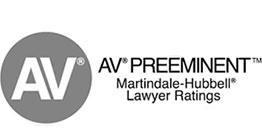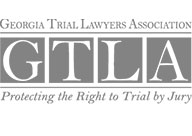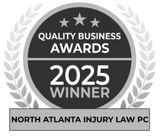If you were injured in a truck accident in Georgia, you have specific rights. But asserting those rights means dealing with corporate legal teams and insurance carriers whose business models require them to balance paying claims with protecting their profits.
The evidence needed to build a strong claim—from driver logs to the truck’s “black box” data recorder—is typically in the hands of the trucking company.
You are likely recovering from serious injuries and facing a stack of medical bills. The last thing you should be doing is attempting to learn federal transportation law. An experienced Milton truck accident lawyer can step in to protect your rights and build your case.
If you have questions about what to do next, our team at North Atlanta Injury Law is here to give you clear answers. Call us for a no-obligation consultation at (770)988-4000.
Milton Truck Accident Guide
- Key Takeaways for Milton Truck Accident Claims
- We Shoulder the Burden So You Can Heal
- How Is Compensation Calculated in a Georgia Truck Accident Claim?
- Truck Accidents in Milton and North Fulton County: A Local Look
- Who Can Be Held Responsible for a Truck Accident?
- A Different Set of Rules: Federal Trucking Regulations
- Building Your Case: The Investigation Process
- What Should You Do From Home to Protect Your Claim?
- Frequently Asked Questions About Milton Truck Accident Claims
- Let North Atlanta Injury Law Handle the Details
Key Takeaways for Milton Truck Accident Claims
- Trucking companies control vital evidence, so act fast. Data like black box records, driver logs, and maintenance reports are held by the company and can disappear quickly. A lawyer can send a spoliation letter to preserve them before they’re lost or destroyed.
- Multiple parties may be liable, not just the driver. Responsibility often extends to the trucking company, cargo loader, maintenance provider, or even the manufacturer. Identifying all defendants is key to maximizing your compensation.
- Federal trucking violations can prove negligence. Breaking FMCSA rules—like hours-of-service limits or safety inspection requirements—often shows clear fault. These violations strengthen your claim and increase leverage in settlement negotiations.
We Shoulder the Burden So You Can Heal
The claim process is methodical, tedious, and filled with paperwork. It’s easy to get frustrated as medical bills pile higher and higher. You might feel pressured to accept a quick, low settlement just to stop the financial bleeding
This is where we step in. At North Atlanta Injury Law, we manage every part of your claim so you can direct all your energy toward your health and your family. We are committed to providing you with:
- A Free Case Review: We will listen to what happened, explain your legal options in plain English, and outline a clear path forward. There is no financial commitment required from you.
- A No-Win, No-Fee Promise: You will not pay us any fees unless we successfully recover compensation for you. This is our investment in your case.
- Direct & Personalized Attention: Your case will be handled by our dedicated team, and you will have a direct line of communication for any questions. We handle the legal burdens so you can focus on what truly matters—getting better.
How Is Compensation Calculated in a Georgia Truck Accident Claim?
A personal injury claim is designed to provide financial stability after an accident caused by someone else’s negligence. In Georgia, the money recovered, legally known as “damages,” is separated into three main types.
Economic Damages: The Billable Costs
These are the straightforward financial losses that can be tallied from bills, receipts, and employment records.
- Medical Expenses: This covers every cost from the initial ambulance ride and emergency room visit to future surgeries, ongoing physical therapy, and necessary prescription medications.
- Lost Wages: The income you have already lost because you were unable to work.
- Loss of Earning Capacity: If your injuries permanently affect your ability to do your job or earn the same income as before, this accounts for the wages you will lose in the future.
- Property Damage: The funds to repair or replace the vehicle that was damaged or destroyed in the collision.
Non-Economic Damages: The Human Impact
These damages are meant to compensate for the ways the accident has affected your quality of life.
- Pain and Suffering: Compensation for the physical pain and emotional distress your injuries have caused.
- Mental Anguish: This can include conditions like anxiety, depression, or post-traumatic stress disorder (PTSD) that stem from the traumatic experience.
- Loss of Consortium: In certain situations, a spouse may have a claim for the loss of companionship, support, and intimacy.
How Does Georgia’s At-Fault Law Affect Compensation?
Georgia operates under a “modified comparative negligence” rule, which is outlined in state law O.C.G.A. § 51-12-33. It’s a legal concept that simply means you can recover money as long as you are found to be less than 50% at fault for the accident. If a jury determines you are 50% or more to blame, you cannot recover anything.
Your total compensation award is reduced by your percentage of fault. Trucking companies and their insurers conduct thorough investigations, looking for any evidence to argue you were at fault. Our role is to keep them accountable and ensure no amount of blame is unjustly put on you.
Truck Accidents in Milton and North Fulton County: A Local Look
While Milton has a suburban character, its closeness to major Atlanta-area highways means it contends with a steady stream of commercial vehicle traffic. Fulton County consistently records one of the highest rates of traffic collisions and fatalities in Georgia. In one recent year, there were 55,932 crashes in Fulton County, resulting in 22,988 injuries and 178 fatalities.
Where Do Most Collisions Occur?
- Georgia State Route 400 (US 19): As a main channel for both commuters and commercial freight, the mix of high speeds and dense traffic creates a volatile environment for serious accidents.
- State Route 9 (Alpharetta Highway): This busy local artery, particularly at intersections like Bethany Bend, has been recognized as a high-accident zone, leading the city to implement safety upgrades.
- State Route 140 (Arnold Mill Road/Holcomb Bridge Road): This key east-west connector sees heavy traffic that forces passenger cars to share the road with local delivery trucks, increasing the risk of sideswipes and intersection accidents.
- Old Milton Parkway: The cluster of business plazas and shopping centers near major intersections like North Point Parkway creates a chaotic setting where impatient turns and lane changes frequently lead to collisions.
What Local Factors Contribute to Truck Wrecks?
- Congestion and “Last Mile” Deliveries: The Atlanta metro area is a commercial hub, which means Milton’s local roads are filled with delivery vans and box trucks making their final drop-offs.
- Sudden Weather Changes: Georgia’s intense rainstorms can appear suddenly, reducing visibility and making roads dangerously slick. A fully loaded semi-truck requires a much longer stopping distance on wet pavement, and drivers who don’t adjust their speed create a serious hazard.
- Rush Hour Traffic: During morning and evening commutes, the roads are packed. This forces 40-ton trucks and small passenger cars into close quarters, raising the chances of rear-end and lane-change accidents.
Who Can Be Held Responsible for a Truck Accident?
In the wake of a truck crash, it’s easy to assume the driver is the only one at fault. However, the law recognizes that a commercial truck is part of a larger business operation, and responsibility frequently extends to other parties.
- The Truck Driver: The investigation starts here, focusing on actions like speeding, distracted driving, fatigue, or driving under the influence.
- The Trucking Company (Motor Carrier): Under a legal principle called vicarious liability, employers are generally responsible for the actions of their employees on the job. The company could also be directly at fault for negligent hiring if they failed to conduct a proper background check on a driver with a poor safety record.
- The Cargo Shipper or Loader: If cargo is improperly loaded, unbalanced, or not secured correctly, it can shift during transit and cause the driver to lose control. The company that loaded the freight may bear some of the blame.
- A Maintenance Provider: Many trucking companies outsource their vehicle maintenance. If a critical failure like a brake malfunction or tire blowout was caused by shoddy repair work, the third-party mechanic or service company could be held liable.
- The Truck or Parts Manufacturer: If the accident was caused by a defective part—a faulty steering component, a bad tire, or a flawed braking system—the manufacturer of that part could be a defendant in the case.
A Different Set of Rules: Federal Trucking Regulations
Commercial trucking is governed by a dense web of safety regulations established by the Federal Motor Carrier Safety Administration (FMCSA). A violation of these rules is often clear evidence of negligence.
- Hours-of-Service (HOS) Rules: To combat driver fatigue, federal law strictly limits how long a trucker can be behind the wheel. For example, a driver carrying property can drive a maximum of 11 hours within a 14-hour window, after which they must take 10 consecutive hours off duty.
- Maintenance & Inspection Requirements: Trucking companies are required to perform and document regular, thorough inspections and maintenance on every part of their vehicles, from brakes and tires to lights and signals.
- Driver Qualifications: A company cannot put just anyone behind the wheel of a semi-truck. Drivers must have a valid Commercial Driver’s License (CDL) for the type of vehicle they operate and a current medical certificate confirming they are physically fit for the job.
- Weight and Cargo Securement: Federal rules dictate maximum gross vehicle weights and provide highly specific instructions on how different types of cargo must be tied down and secured to prevent dangerous shifts or spills.
Building Your Case: The Investigation Process
Unlike a car accident claim that might rely on a police report and photos, a truck accident case requires a much deeper investigation. Our first move is to act quickly to preserve evidence before it disappears.
We do this by sending a spoliation letter to the trucking company. This is a formal legal notice demanding that they preserve specific evidence related to the crash. In Georgia, the law forbids the destruction or failure to preserve evidence necessary for pending or expected litigation. This letter legally obligates them to save items such as:
- The Truck’s “Black Box”: Known as an Electronic Logging Device (ELD) or Event Data Recorder (EDR), this device records data on speed, braking, engine performance, and hours of service.
- Driver’s Logs: These records show how many hours the driver was on the road and when they took their mandatory rest breaks.
- Dispatch Records: Communications between the driver and the company can reveal if the driver was being pressured to meet an unrealistic deadline.
- Maintenance and Inspection Records: These documents show whether the truck was kept in a safe, roadworthy condition as required by law.
- Driver’s Qualification File: This includes the driver’s employment history, driving record, drug and alcohol test results, and training certifications.
Once this evidence is secured, we work with accident reconstruction experts and industry specialists to analyze the data and piece together exactly how and why the accident happened.
What Should You Do From Home to Protect Your Claim?
While our team handles the legal work, there are simple steps you can take to strengthen your case.
- Follow Your Doctor’s Treatment Plan: Attending all medical appointments and following through with prescribed care is incredibly important. It creates an official record connecting your injuries to the accident and demonstrates your commitment to recovery.
- Keep a Pain Journal: Each day, write down your pain levels, the physical challenges you encounter, and how your injuries are impacting your family and your mood. This personal account provides a human story that a stack of medical bills can never tell.
- Organize Your Documents: Keep a dedicated file for every document related to the accident. This includes medical bills, pharmacy receipts, pay stubs showing your lost wages, and any letters or emails you’ve received from an insurance company.
- Stay Off Social Media: Do not post anything about the accident, your injuries, or your daily activities. Insurance companies routinely scan social media accounts for photos or comments they can use out of context to argue your injuries are not as severe as you claim.
Frequently Asked Questions About Milton Truck Accident Claims
How long do I have to file a truck accident lawsuit in Georgia?
For most personal injury claims in Georgia, the statute of limitations is two years from the date of the accident. However, there are exceptions that can change this deadline, so it’s always best to consult with a lawyer to determine the eligibility of your case.
What happens if the truck driver is an independent contractor?
Trucking companies sometimes classify their drivers as independent contractors to try to limit their responsibility. However, the company may still be held liable for negligent hiring if they didn’t properly vet the driver, or if they maintained significant control over the driver’s work. Federal regulations sometimes define these contractors as “statutory employees” for safety purposes, which means the motor carrier is still responsible for their actions on the road.
What if the accident was partially my fault?
As we mentioned above, Georgia’s comparative negligence law allows you to recover damages as long as you are less than 50% responsible. Your final award will simply be reduced by whatever percentage of fault is assigned to you.
What are some common injuries in truck accidents?
Due to the massive force involved, truck accidents frequently cause severe injuries that have long-term consequences. These include traumatic brain injuries (TBIs), which can range from concussions to permanent cognitive damage, and spinal cord injuries that may result in partial or complete paralysis. Internal organ damage and complex bone fractures are also common.
Do I have to go to court?
The vast majority of personal injury cases are settled out of court through negotiations. A settlement avoids the time, expense, and uncertainty of a trial. However, if the trucking company and its insurer refuse to make a fair offer, we will be fully prepared to take your case before a judge and jury to pursue the maximum compensation available under the law.
Let North Atlanta Injury Law Handle the Details
Your energy should be dedicated to one thing: your recovery. Let our team manage the legal process. We have the experience to take on large trucking corporations and their insurance carriers, and we are ready to help you get the resources you need to rebuild your life.
Contact a Milton personal injury lawyer today for a free, confidential discussion about your case at (770)988-4000.
North Atlanta Injury Law PC – Milton Office
Address: 12610 Crabapple Road Suite 201 Milton, GA 30004
Contact No: (770)988-4000








